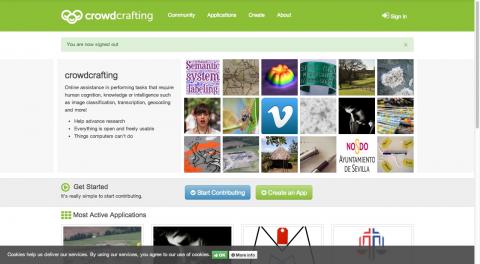Crowdcrafting is Scifabric’s user-friendly open-source platform that allows users to create projects where volunteers help to analyze research data. Anyone from universities, research facilities, professionals, to community members are able to create and/or participate in projects hosted on Crowdcrafting. The platform hosts more than 350 citizen science projects!
- MicroPasts – British Museum and University College of London
Thee British Museum and the University College of London have built a PyBossa-powered platform that invites members of the public to become citizen archeologists. The Micropasts project aims to create the world’s leading prehistoric metal database and change the way we research our collective past. It seeks contributions to help create 3D models of some of the British Museum’s vast collection of Bronze Age artefacts using a process known as photomasking, and to transcribe their associated paper records and identify their sites of discovery.The Micropasts team have created over 100 archival transcription, geo-referencing and photomasking projects, and is at the forefront of crowdsourcing humanitarian research.
The British Library has created LibCrowds, a crowdsourcing project for transcribing library records. LibCrowds’ maiden project – Convert-a-Card – uses PyBossa technology to ask volunteers to transcribe text from printed card catalogues into electronic records, making them available to a worldwide audience. The project is initially focused on the library’s Asian and African collections. Data identified, transcribed or translated as part of the project will be freely accessible from the British Library’s Explore catalogue.
The National Library of Israel has constructed a new platform using PyBossa software with the aim of improving their metadata. They ask contributors to tag, transcribe and answer questions relating to historical Israeli documents.

